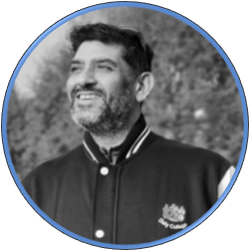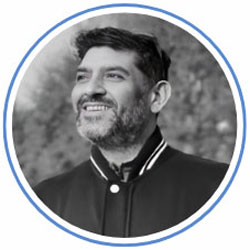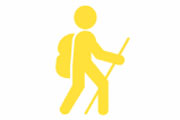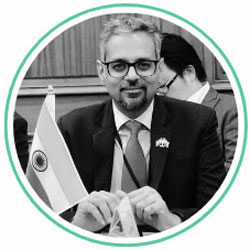Stories Make the World Go Around
As a corporate trainer, whenever I’m facilitating a storytelling workshop, I like to begin by asking the participants, “What is your favorite story?” Take a moment to think of one yourself. If you also thought of a film, then you belong to eighty percent of the population. While film (and now OTT) is the most popular form of storytelling today, stories are not just limited to films. Anyone working in the performing arts is telling a story through a painting, sculpture, song, dance, photograph, or even an Instagram reel. In fact, stories are not limited to the performing arts alone. Whether we realize it or not, we are constantly telling and hearing stories on a daily basis. “Why were you late to work?” “Why should we give you the job?” “What is your opinion on this subject?” —these are just a few examples that require a flair for storytelling.
The brightest minds once believed that the Earth was flat. Today, we know better and have discovered that the Earth is round and rotates on its own axis. This is a fact based on science that I wouldn’t challenge, but it is still something that I have only seen in pictures or read about in books, much like a story. Honing the art of storytelling is not just meant for ‘storytellers’.
It is not surprising that, traditionally, most cultures practiced meeting under a tree, by the fire in the evening, or even at a bar to tell stories. They did this through song and dance, playing musical instruments, or even through mindless gossip. This can even be informally observed today. In India, the Natya Shastra is a guide for performers that dates back thousands of years. Widely accepted as the fifth Veda, it was not just meant to be practiced by artists but by everyone from all walks of life. Storytelling was—and will always be—an integral part of our daily rituals.
So, what is it about stories that have stood the test of time? Why do we tell stories? What do they reveal about being human?
Human beings are perhaps the only creatures who know their time on Earth is limited. Yet, despite this, they don’t always live in the moment; they spend more time in the past or future.
Stories transcend time—past, present, and future—and can be used to document events. They help us give shape to our experiences, comprehend reality and ourselves, and share our stories in ways that others can understand. Stories give us a sense of belonging and help us make sense of the world by connecting us to others who have had similar experiences and survived them. We all love stories, and we all seek affirmation that our lives have meaning. Nothing affirms this more than connecting through stories. Someone rightly said, “Frankly, there isn’t anyone you couldn’t learn to love, once you’ve heard their story.”
At Syngrity, we offer a comprehensive storytelling workshop designed to help individuals enhance their narration skills and craft and deliver stories that resonate, inspire, and connect with their audience. Reach out to us to know how we can help you cultivate the skill that is storytelling.
 Rohit Mehra is an actor & theatre practitioner with over 15 years of experience. He is trained in Physical theatre from The London International School Of Performing Arts (London/Berlin) and has a Masters in Communication and Journalism. Rohit views the performance process as a deeply introspective journey, capable of fostering mindset and behavioral transformation. As a result, he believes it should be practiced by people regardless of the field they belong to. With the expertise he has gathered over the years from theatre and film, he conducts workshops on storytelling and executive presence for both students and corporate professionals, applying principles that are relevant across industries.
Rohit Mehra is an actor & theatre practitioner with over 15 years of experience. He is trained in Physical theatre from The London International School Of Performing Arts (London/Berlin) and has a Masters in Communication and Journalism. Rohit views the performance process as a deeply introspective journey, capable of fostering mindset and behavioral transformation. As a result, he believes it should be practiced by people regardless of the field they belong to. With the expertise he has gathered over the years from theatre and film, he conducts workshops on storytelling and executive presence for both students and corporate professionals, applying principles that are relevant across industries.



 MALATI VASUDEVA
MALATI VASUDEVA VIKRAM BADHWAR
VIKRAM BADHWAR PRIYANKA KUMAR
PRIYANKA KUMAR SUMAL VARGHESE
SUMAL VARGHESE














